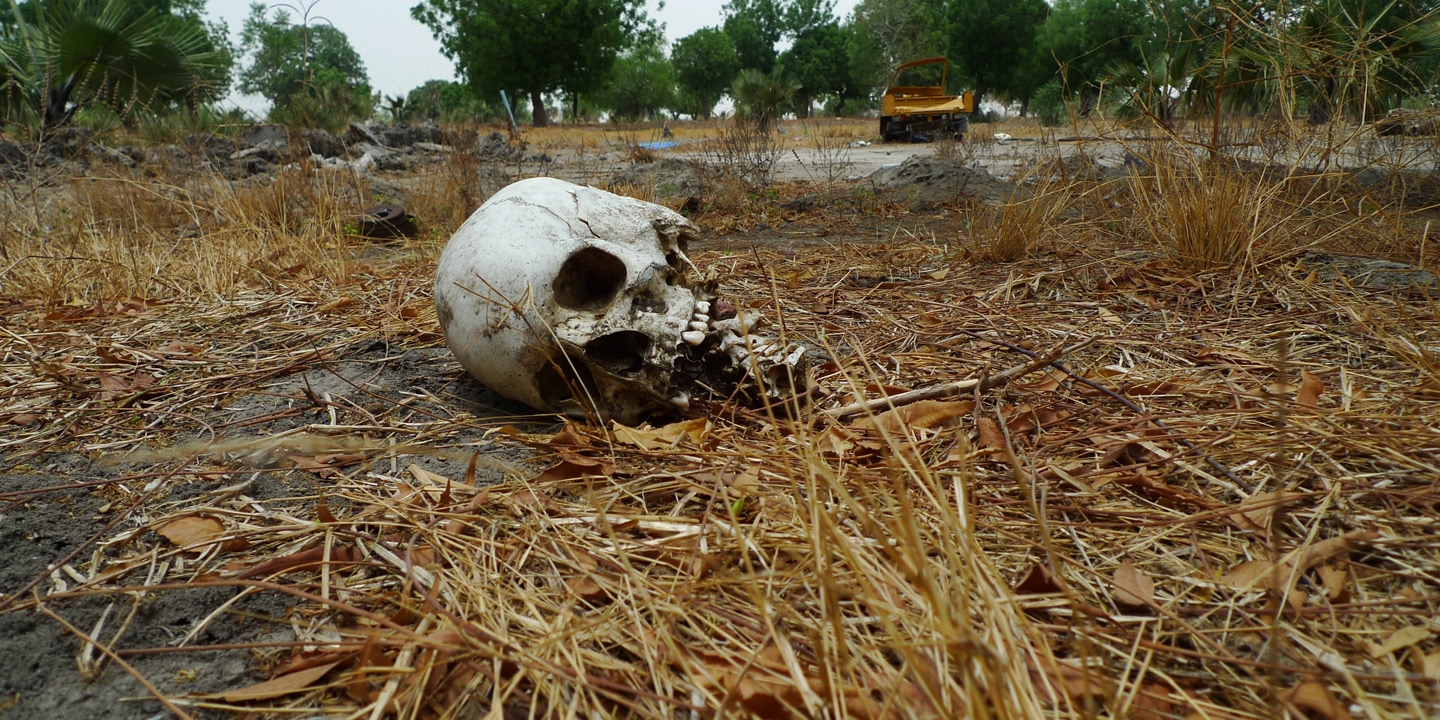Current Affairs
Changing Times
01 October, 2017
South Sudan's civil war
This month, October, could be the period that will witness a remarkable change in the tripartite relationship between Sudan, South Sudan and the United States. At the time Sudanese-US bilateral relations are moving slowly and gradually towards normalization after decades of boycott and sanctions, those of the South Sudan and US are going into the opposite direction.
On Oct. 12, if not before, the Trump administration is scheduled to issue its long awaited decision regarding lifting two decades of imposed sanctions on Sudan. And if recent moves by Washington like scarping the Temporary Protection Status for Sudanese nationals or removing Sudan from the travel ban is any guide, then Khartoum should prepare to embrace the good news.
On the other hand this month will see the visit to Juba by the most senior official from the Trump administration, Nikki Haley, the US ambassador to the United Nations. Haley’s visit is basically to deliver a strong message to President Salva Kiir and his government that time is running out and better to use the opportunity of the IGAD mediation to work out on a sustained peaceful solution to the dispute that developed into a civil war that is about to complete its fifth year.
In one of the ironies of history, Washington who imposed sanctions on Sudan partly because of its war with its then citizens in South Sudan, found it difficult to convince the UNSC to impose sanctions on Juba and was forced to go solo after it faced opposition from both Russia and China.
South Sudan has been one of the five tracks that the Obama administration has worked out with Khartoum to gauge their bilateral relations and a measure regarding sanctions. However, it was a negative measure as it only calls on Khartoum not to meddle in the internal dispute in South Sudan. By now it is becoming very clear that the dispute in South Sudan has its own indigenous roots that need to be addressed and Sudan is more qualified than other neighbors to play a positive role. After all it is the mother country from which South Sudan ceded, with the longest border line and more important it has the only outlet that can carry South Sudan only commodity, the crude oil, through its pipeline and other facilities that can take that crude to world markets and get back the much needed hard currency.
But on the other hand Khartoum is taking some positive steps. Like other neighbors it is taking its share of refugees that were put officially at half a million people. Also last month both Sudan and South Sudan signed agreements aimed at stimulating border and transit trade that cover 54 items as well as tackling issues related to oil industry where Sudanese expertise could be utilized to help increasing oil production in South Sudan.
This could be another factor that ought to be added to the interest of Washington in lifting sanctions. After all US has a moral obligation to save South Sudan from its current mess given the central role it played as midwife that helped brought the youngest country on earth into being.
However, tackling the problems of South Sudan needs a fresh start, a fact that is clearly underscored by the failure of the IGAD initiative that has been bogged down from day one and with no clear sign that things may change even after the expected visit of Nikki Haley.
In fact it was the same IGAD initiative and mediation, backed by western countries led by the US, in the Sudan conflict that resulted in the CPA. Aside from achieving South Sudan separation the CPA failed to honor any of its declared goals notably maintaining peace between the two countries or within each of them.
Given the failure of the CPA and the inability of the IGAD to make any meaningful headway in South Sudan, it is hard to expect more punitive measures will lead to a peaceful settlement of the struggle.
There is no ready-made blueprint to adopt, but it worth having a real honest approach to what happened so far in both Sudan and South Sudan. It is easy to point a finger at the failures of the elites in both countries, who were driven by their own ambitions at the expense of their people, but the international community bears some responsibility as well. Such critique should be the starting point to explore the way ahead.
E N D
SS/AS
Post your comments
Photo of the Week
Everybody alive today came from one African country (The Independent) Ariana Baio Khartoum, Jan.1 (Sudanow)-It is well known that all humans alive today can be traced back to a common ancestor but a study may have found where that ancestor originates. Researchers at the University of Oxford’s Big Data Institute mapped the entirety of genetic relationships among humans t...
MoreNew media
The Poll
Archives
-
01 January, 2023
Phone battery killed nine persons, injured twelve
Zalingei, Jan.1 (Sudanow) - A dispute over a phone battery, in Marin Market, Central Darfur, led to the killing of nine persons and injuring of another twelve. The Director of Central Darfur Police, Salah Omar Al-Tayeb told SUNA last Thursday that main reasons behind the events in Zalingei began with a dispute over a phone battery, where one of the citizens stabbed to death. The police official added that the police forces moved to th...
Sudanow is the longest serving English speaking magazine in the Sudan. It is chartarized by its high quality professional journalism, focusing on political, social, economic, cultural and sport developments in the Sudan. Sudanow provides in depth analysis of these developments by academia, highly ...
MoreRecent tweets
Tweets by Suda_nowFOLLOW Us On Facebook
Contact Us

Address: Sudan News Agency (SUNA) Building, Jamhoria Street, Khartoum - Sudan
Mobile:+249 909220011 / +249 912307547







